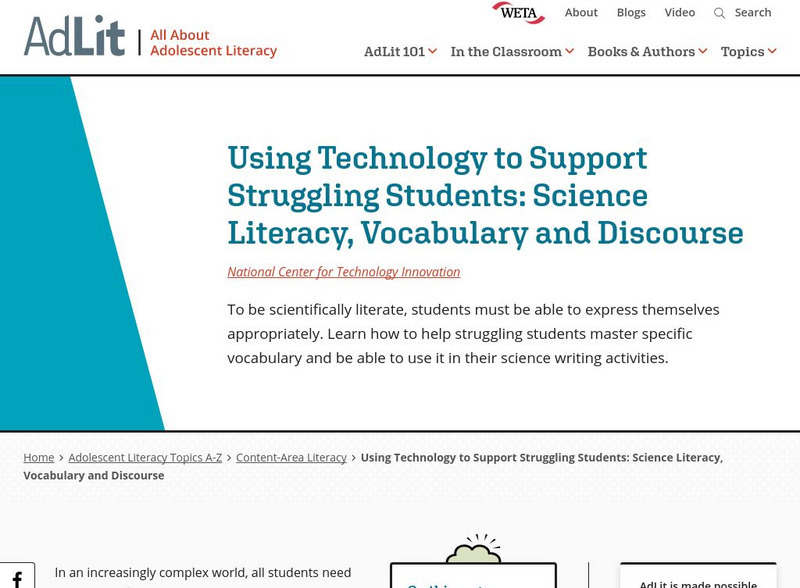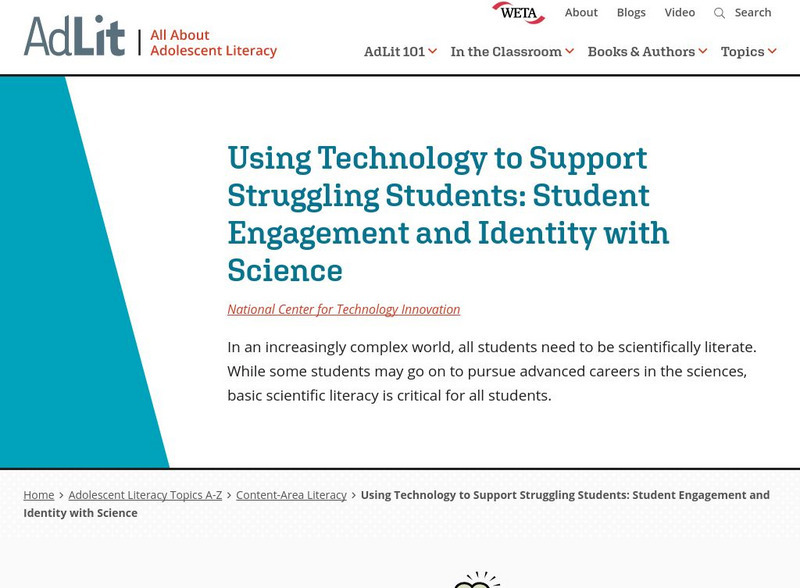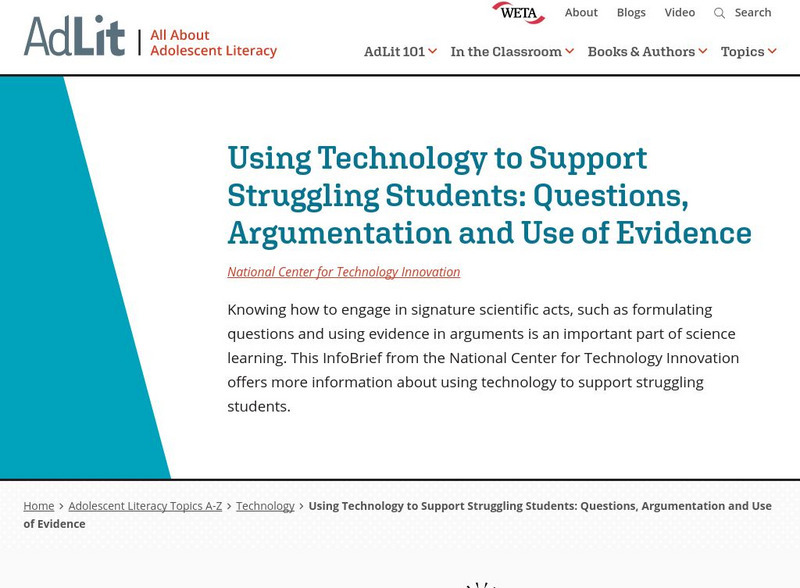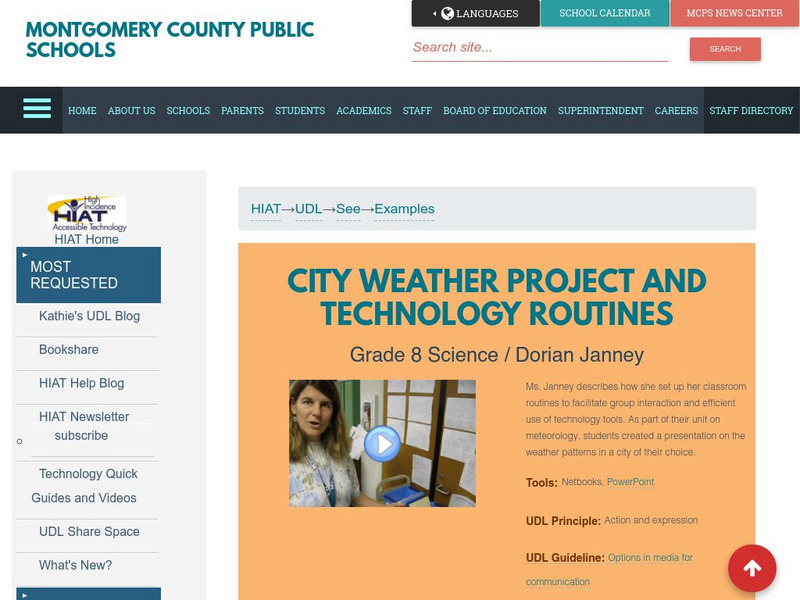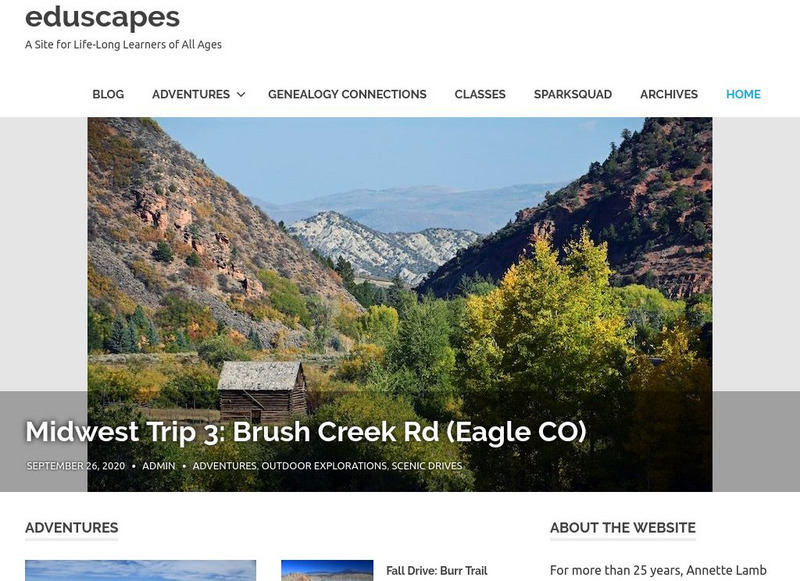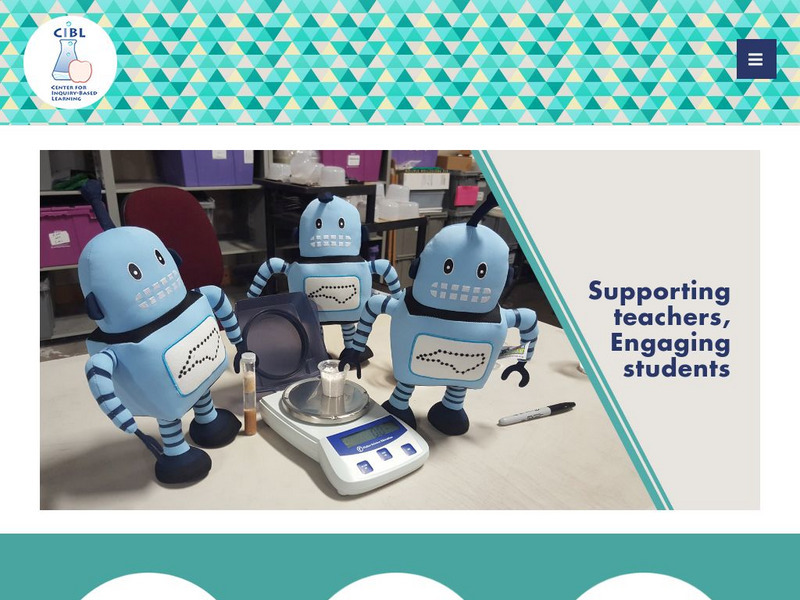West Virginia Department of Education
Technical Writing: Real-World Writing in the 21st Century
Wondering how to respond to the age-old question when will I ever use this? The answer is very simple when discussing technical writing. Teachers and administrators gain an understanding of using technical writing in the classroom....
EngageNY
TASC Transition Curriculum: Workshop 15
What do a cheetah, Audi commercial, and air have in common? They're all topics of an engaging inquiry-based, hands-on workshop for educators about background knowledge, reading strategies, the CER model, and argumentative writing. The...
EngageNY
TASC Transition Curriculum: Workshop 9
Here's a workshop for teachers that rocks the academic world! Using earthquakes as a medium for instruction, educators learn about crosscutting engineering with science. Fun, hands-on, collaborative exercises encourage participants to...
Hawthorn Academy
Guided Reading Before, During and After Activities
There's more to reading than just reading! Help your kids get the most out of a text by setting up guided reading activities and providing worksheets. This resource includes ideas for activities to complete before, during, and after...
Achievement Strategies
CCSS Unpacked Learning Targets for Reading and Writing History/Social Studies
How do all the lessons and activities you have planned for your class align to Common Core State Standards? This can feel like a very daunting question. Help ease the process by referencing a template that not only lists and...
AdLit
Ad lit.org: Using Technology to Support Struggling Students: Vocabulary
To be scientifically literate, students must be able to express themselves appropriately. Learn how to help struggling students master specific vocabulary and be able to use it in their science writing activities.
AdLit
Ad lit.org: Using Technology to Support Struggling Students
In an increasingly complex world, all students need to be scientifically literate. While some students may go on to pursue advanced careers in the sciences, basic scientific literacy is critical for all students.
AdLit
Ad lit.org: Using Technology to Support Struggling Students
Knowing how to engage in signature scientific acts, such as formulating questions and using evidence in arguments is an important part of science learning. This InfoBrief from the National Center for Technology Innovation offers more...
PBS
Pbs: Inside Itest
This site features participants in the National Science Foundation's Innovative Technology Experiences for Young scholars and Teachers program to show how they are learning science by doing it. The videos provide ideas for teachers to...
Montgomery CountyPublic Schools
Mcps: City Weather Project and Technology Routines
A Grade 8 Science teacher describes how she set up her classroom routines to facilitate group interaction and efficient use of technology tools during a UDL unit. As part of their unit on meteorology, students created a presentation on...
Other
Eduscapes
The creators of eduscapes have designed this website to share their love of learning and teaching with others. The site aims at effectively integrating technology into the classroom in a fun and seamless way. Use the site to get lesson...
North Central Regional Educational Laboratory
Ncrel: Pathways to School Improvement
Use this NCREL site to find research and best practices relating to many critical issues in education. Each area on the site includes discussions of critical issues, supporting material, and additional resources. Areas include...
Other
Duke: Center for Inquiry Based Learning
Duke University has established the Center for Inquiry-Based Learning. It serves to enhance math and science lessons. Click on Resources for good examples of Inquiry-based lesson plans.





